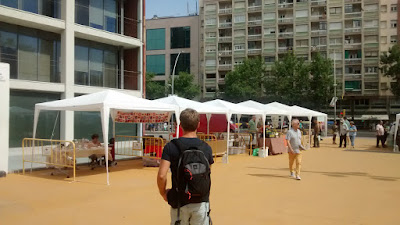El prop mes de setembre participem (l'Oscar Alfranca, en Luis Maldonado i jo) a la segona conferència Internacional sobre agricultura en una societat urbanitzada. Aquesta conferència es durà a terme Roma.
Us adjunto el títol i el abstract del treball que presentem.
"Urban farms
adaptation to citizens - The case of Alella wine region within Barcelona Metropolitan
Region.
Urban agriculture plays an important role to
keep urban fringe areas. Agriculture does not only produce agricultural goods
but also non-market agricultural goods. Thus, it is important to preserve agricultural
activities and to keep farmers in these urban fringe areas. Cities can be an
opportunity for farmers offering products and services that citizens demand and
no longer be understood only as a threat to agricultural activities.
The object of this work is to analyse whether the wineries of the Protected Designation
of Origin Alella, within Barcelona Metropolitan Region (Catalonia, Spain), have
adapted their business model to the proximity of cities/citizens and to know
what ecosystem services are involved in the offer. The semi-structured
survey form used for the study has been agreed by the European project COST
Action TD 1106 Urban Agriculture Europe."
 |
| Can Brosa - Tiana |
































